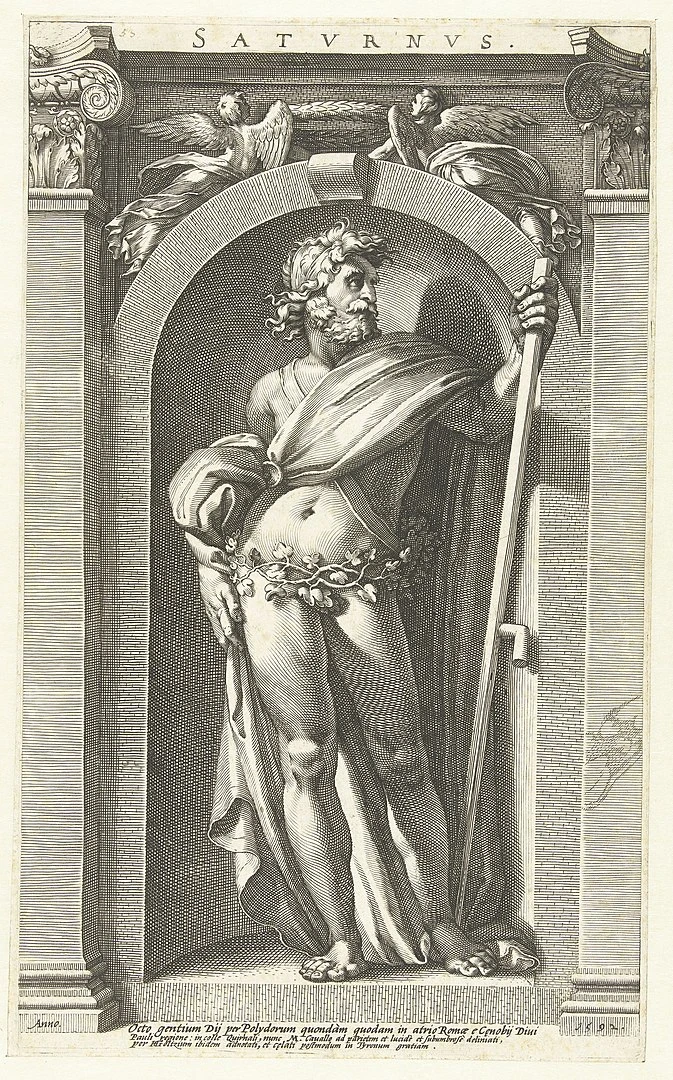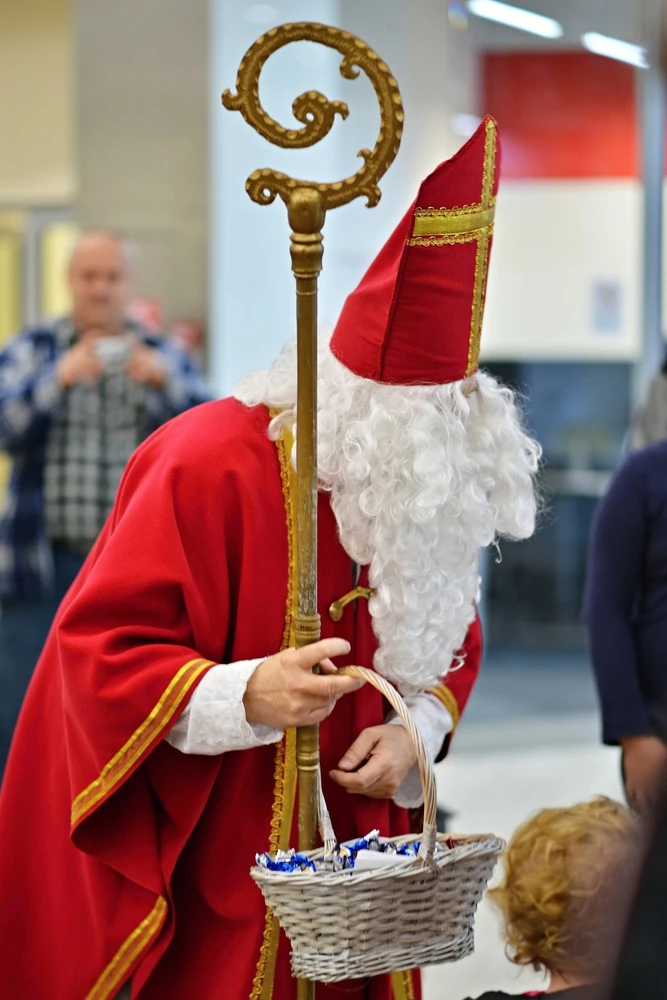Giving gifts at the end of the year: an old idea
Christmas gifts: photo selected by monsieurdefrance.com: pressmaster via depositphotos.com
It is a very old tradition to give gifts to loved ones at the end of the year. The Romans were already doing this more than 2,000 years ago. Santa Claus is even more recent. Before him, others were responsible for giving gifts to children.
The Romans already did it.
In December, the Romans celebrated the Saturnalia. They decorated their homes, particularly with holly. Tradition also dictated that people should give gifts. Small gifts were given to children who did not go to school that day and received a treat or a small terracotta figurine for the wealthier ones. Adults also gave each other gifts, and slaves were given a day off. This tradition continued for a long time, even after the arrival of Christianity, since the date of Christmas was not set at December 25 until the 4th century.
The Roman god Saturn. Illustration chosen by monsieurdefrance.com: engraving by Hendrick Goltzius in the 17th century, based on a copy of a fresco by Polydoro da Caravaggio in the 16th century.
Then a long eclipse before the return of gifts
With the end of Roman traditions came the end of Saturnalia. For a long time, Christmas was only a religious holiday, without gifts. It was at the end of the Middle Ages that the end of the year once again became a time for gift-giving:
- More like Christmas for the children,
- And the beginning of the year for adults, with New Year's gifts.
In certain regions of Europe (Germany, Austria, etc.) and in the Duchy of Lorraine, Saint Nicholas was celebrated on December 6. Near Spain, gifts arrived on Epiphany, like those offered by the Three Wise Men to the baby Jesus. In the 18th century, gifts were reserved for the elite, and it was very rare for a poor child to receive anything. It was in the 19th and 20th centuries that Christmas became a time for gifts for everyone—sometimes just simple treats or a precious orange.
Who gives the gifts?
Saint Nicholas distributes sweets. Photo selected by Monsieurdefrance.com: Muro via depositphotos.
Saint Nicholas and others before Santa Claus
Before Santa Claus became established after World War II, other characters brought gifts.
- In Lorraine, Alsace, northern France, but also in Belgium and Luxembourg, it was Saint Nicholas who gave gifts to well-behaved children, accompanied by Père Fouettard.
- In Franche-Comté, a woman called Aunt Arie fulfilled this role.
- In Quebec, it is the baby Jesus himself.
- In Spain, you have to wait for the Three Wise Men in early January.
In Lorraine, Saint Nicholas is still the main distributor of treats to well-behaved children.
Santa Claus in the 19th Century
Santa Claus now gives out gifts. Photo selected by Monsieurdefrance.com: Hasloo via depositphotos.
In Anglo-Saxon countries, Santa Claus became established in the 19th century. Heir to Father Winter and Saint Nicholas (Santa Claus), he became a magical character, devoid of any religious dimension. Mentioned by Charles Dickens in 1843, he was introduced to France by American soldiers during World War I. But it was the Second World War that finally made him popular throughout the country. His costume, initially green or blue, became red before 1914—and has remained so ever since.
FAQ – The origins of Christmas gifts
Why do we give gifts at Christmas?
Because it is a tradition inherited from the Roman Saturnalia, where the end of the year was celebrated by giving gifts.
Since when have people been giving gifts at Christmas?
For over 2,000 years: first in Rome, then in the Middle Ages with New Year's gifts, before Santa Claus became established in the 20th century.
Who gave gifts before Santa Claus?
Saint Nicholas, Aunt Arie, ou encore the Three Wise Men, selon les régions d’Europe.
When are gifts given elsewhere?
December 6 (Saint Nicholas Day) in Northern Europe, or January 6 (Epiphany) in Spain and Latin America.
Does Santa Claus come from the United States?
Yes and no: he comes from the fusion of the Dutch Santa Claus and the European Saint Nicholas, popularized by American culture in the 19th century.
Please note that there may be translation errors. Our translator has gone Christmas shopping and seems to be having trouble finding what he needs. We had to replace him with the cook, and she only knows Latin.








